Michelle Lynch, whose earliest inspiration was music and whose writing process is to “wonder and wander,” says she “writes towards healing” and credits her MFA with making her a better Language Arts and Literacy teacher.
MICHELLE LYNCH – POETRY, JUNE 2014
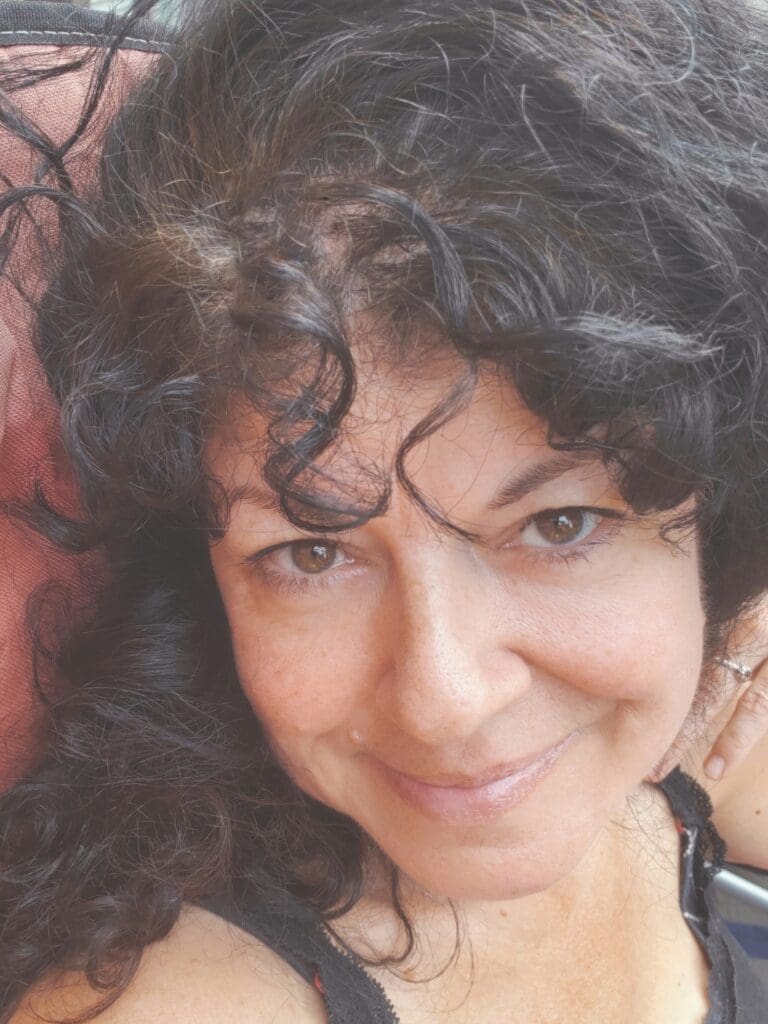
MICHELLE LYNCH is a storyteller at heart whose favorite ways to tell stories are through poems, photographs, on the stage and in the kitchen. During the day she tends to her soul career of teaching learning-diverse, elementary-aged children. She’s yet to live in a tiny cabin at the banks of a river at the foot of the mountains filled with Renaissance light, but she’s working on it. Her works have been published in Fried Chicken and Coffee, Heartwood Literary Journal, In Layman’s Terms, Iron Horse Literary Review, Lunch Ticket, Memoryhouse Magazine, NonBinary Review, Postcard Poems and Prose Magazine, and San Pedro River Review.
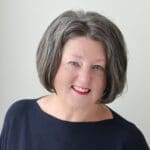
Interviewed by
Celia Jeffries
What is the driving factor that gets you out of bed to write?
To answer this properly, I should define what writing means to me. The first stages involve no physical writing at all. For my latest poem, this looked like a quiet walk along the Hudson River, reading an article about Roman catacomb frescoes, pondering an art installment that used discarded materials and colored glass, and wandering into a pop-up birth of punk rock exhibition. Each had illuminated a new way of thinking about what I was trying to convey, and none of them have anything to do with the final poem. Here and there I jot down thoughts, sketch small illustrations, photograph curiosities, and dance – all of which I consider “writing.” I’ve dealt with ADHD ever since I learned to form letters, and for a long time I thought I couldn’t possibly be a writer because they had to sit and participate in the act of writing for long stretches of time. Once I freed myself from that conventional idea of writing, writers, and the creative process in general, I was able to see that for me, living is synonymous to writing. So cliché as it may be, it’s life that drives me out of bed to write. My love tottering on utter heartbreak for this broken world is my driver for all things – I write towards healing myself, my communities, and our earth.
What do you enjoy most about your writing?
What I enjoy most about my writing is the journey it takes me on. I wonder and wander through my imagination first, then willingly get drawn down paths of focus and folly. It’s all good, even when it’s full of sorrow, because it provides insight and healing.

Tell us a bit about how you use different mediums to tell stories.
I tend to use different mediums for different types of storytelling. If I want to tell a story about the human condition, I tend to use my camera. I like the idea of photographs being checkpoints along the way of a story’s journey – how they take you deep into one instant of the story as it unfolds. I enjoy directing theater for the intimacy, immediacy and intention involved in storytelling to a live audience. I also enjoy the collaboration involved between playwright, actors and director – there’s a lot of trust involved. I use illustration (one panel cartoon-form as of late) to explore fantastical realism. There’s something about changing the narrative of a visual story just by changing a line’s shape or color that I find enchanting.
Do you have any bad writing habits you’ve picked up over the years?
My worst writing habit is jotting down stanzas, or maybe even entire poems, in non-dedicated places like backs of envelopes, alongside grocery lists or per my latest discovery, on the back of a random photograph found inside a book about Tuscan villages. Yup, one messy brain! It’s not the habit of writing things down on whatever I can find that I think needs work. Not at all! I love that part of my process, but the organization part needs fixing. I’m tickled to discover poetry scraps randomly tucked here and there, but then not being able to re-access them because I don’t remember where they are is an issue. Maybe I’ll create a manuscript of poems created by nothing but the bits and pieces of writings I find. Haha – honestly that’s way more likely to happen than me actually creating an organizational system!
What or who were some of your earliest inspirations in writing?
My first writing inspirations came from music. I loved listening to the stories in old country and folk songs, like George Jones’s “He Stopped Loving Her Today” and Simon and Garfunkel’s “Kathy’s Song.” I used to sit at our old electric organ of all instruments and try to write my own when I was in elementary school. I was also obsessed with the National Geographics in my 3rd grade classroom. I was drawn to the storytelling power of photojournalism and can still see those stories so vividly in my mind’s eye. I begged for a real camera when I was ten and instantly tried to tell the story of my little, rural town. I didn’t grow up in a reading family, but I had an uncle who was an antiques dealer that would pay one lump sum to clear out a client’s attic with the hope that his purchase would contain several pieces he could restore and re-sell. Often, in addition to the furniture, he’d have marvelous vintage clothes and beautiful old books in the lot. He was thoughtful to bring all of those to me, him knowing I adored both, and it changed my life. I used to dress up in musty feather boas, discolored beads and fancy hats, and sit in my attic reading whatever he brought, like Shakespeare, which I loved long before I ever understood it, Lord Byron, Elizabeth Barrett Browning, and a well-worn copy of a Children’s Garden of Verse, which captivated me with its simple, yet thought-provoking rhymes.
What is something that tends to get in the way of your writing and how do you overcome it?
Well, as a writer who also has a career outside of writing, I would say that my “other job” as a teacher tends to get in the way of my writing. It’s a both a time and space issue. Teaching takes a lot of time, particularly in special education. It also takes up a lot of space in my head; space usually reserved for free-flowing thoughts. The only way I’ve found to overcome it is through patience and grace. Through constructing a framework that works for me, including a longer runway to launch from, I’ve come to accept (and that’s key – acceptance) that during certain times of the school year there will be months in which I just can’t get to all the parts of writing that I want to. Usually, during those times I can stay plugged in by editing and refining work I’ve already gotten down on paper, since I can control the start and finish of an editing session, unlike when I’m actively writing.
For you, what was the most valuable part of the Lesley MFA program that helped your writing career?
This is a really difficult question as I find my time in the MFA program to have been invaluable. My path to the program was unexpected, so I can’t even start from a place of what kind of value I was seeking when I started. I had been in Lesley’s Integrated Teaching through the Arts M.Ed. program, and we were studying how to incorporate poetry into the classroom with Danielle Georges. Our final assignment was to create a chapbook of stylistic poetry we’d written for class exercises. When I met with Danielle to go over my work, she suggested I look into Lesley’s Low Residency program in poetry, asking if she could share my work with then director, Steven Cramer. From Danielle’s recommendation to the life-changing conversation I had with Steven about my poetry, to my incredible mentors (Joan Houlihan and Kevin Prufer), talented peers, and all the new material I was introduced to, its value to me is encompassing.
How has your MFA influenced your work as a teacher or vice versa?
My MFA has made me a much better Language Arts and Literacy teacher than I ever would have been without it, as the program challenged me to think about language more concretely than I had before. I work a lot with neuro-diverse students with language-based processing disorders. These students often need a linear, progressive understanding of how language works in order to acquire it at more and more complex levels. Lesley’s small and large group evaluations taught me a good deal about how to use the mechanics of writing in conjunction with conceptual ideas to convey meaning. Having that knowledge enables me to create more meaningful and accessible lessons. Secondly, being around children is incredibly freeing for me – I’m enamored of the instant access they have to their imaginations, and how they move through spaces and situations so spontaneously. Their entry points into poetical thought are fascinating to me, too. Once during a simile lesson, a 3rd grader with dyslexia offered: “I dream like a pirate ship.” I love that so much! I imagined him dreaming in waves and spirals of motion and swashbuckling sounds.
What is a piece of writing or publishing advice you’ve learned since graduation that you think others should know?
I’ve had the pleasure to see two writers whose work I admire, Nikky Finney and Mary Ruefle, in conversation about their writing practices. Nikky advised that writers establish a routine that has nothing to do with anybody else’s ideas about how one should go about having a routine of writing. She challenged the notion that writing is only done at a desk with words. Mary suggested that poetry is not what you do, but who you are. She talked about her own process being spontaneous, messy, and intuitive. Both bits of advice hardwired instantly into my psyche and help me steer through the anxiety and doubt that rears up every now and then.
Tell us a fun fact about yourself that doesn’t have to do with writing.
Well, I’m not sure how much fun this is as a fact, but it’s always a fun story to tell. I once turned down an offer to escape La Guardia airport in a rental van during a raging snowstorm with the members of the band Journey (minus Steve Perry), who were on their way to play at a corporate event somewhere in Ohio.
What are you working on now?
I’m currently (and pastly for a while now) working on getting several manuscripts to the final “send out” stage. I’m also delighted by projects involving found poetry, street photography, multimedia art, and cooking. I’m in the research stages for a non-fiction book I’ve been wanting to write for some time now, and taking wobbly first steps as a brand designer and purveyor. It’s a gorgeous mess of sound, color and intersecting ideas right now, which suits my ADHD brain really well. I’d love for anyone who is interested in street photography to follow along with my visual storytelling journey on Instagram: @thirtyminutesNYC. I’m loving the challenge of telling a short story within a single frame of captured light and shadow.
Listen to Michelle read several of her poems in the video below!

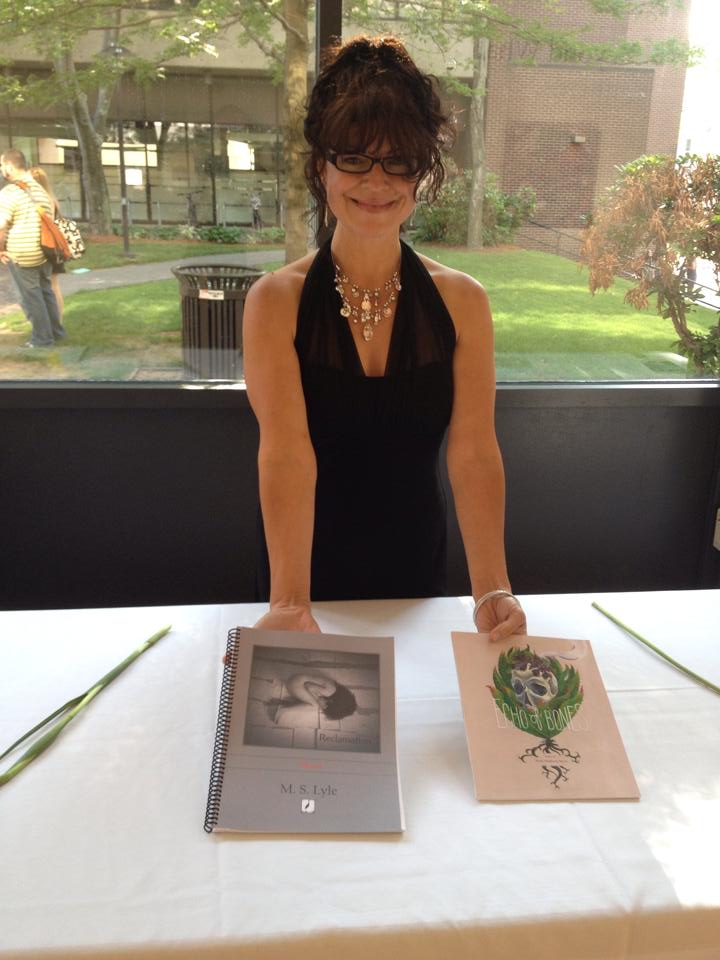
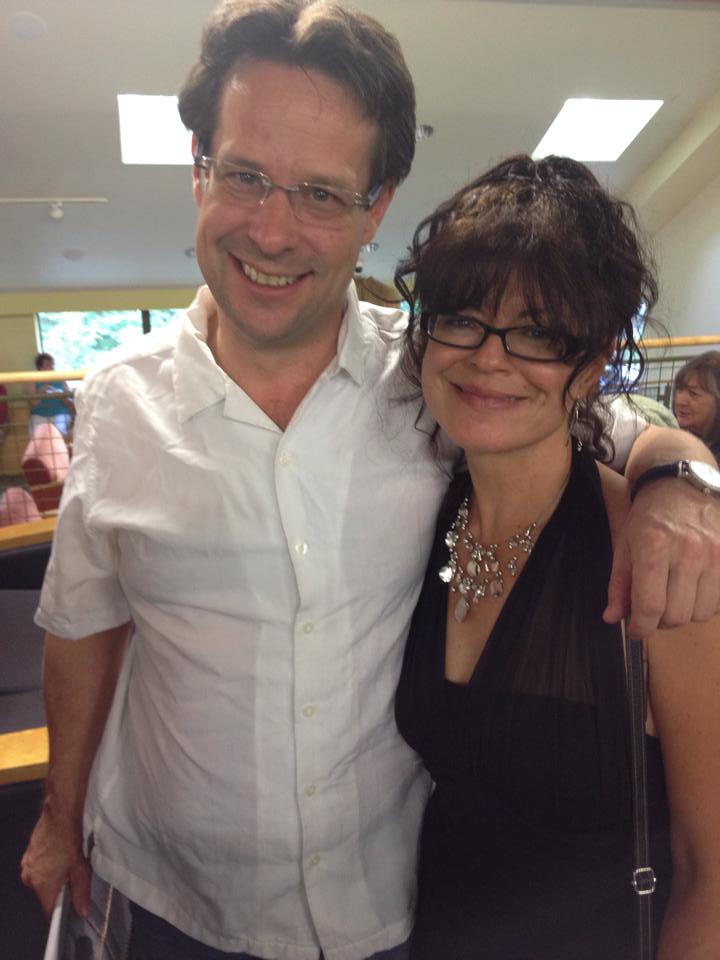
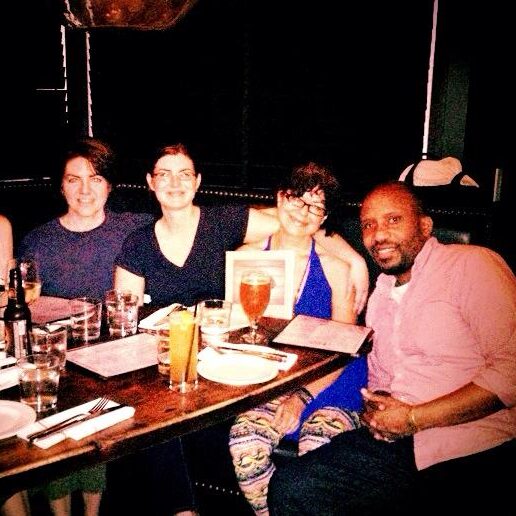
Comments are closed